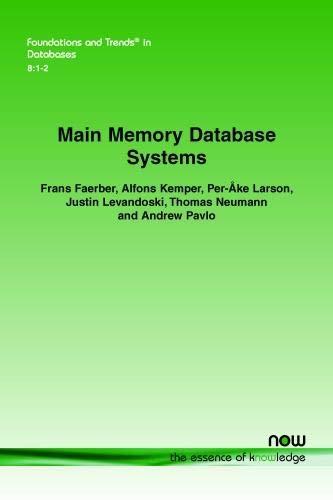Question
We are running programs where values of type int are 32 bits. They are represented in two's complement, and they are right-shifted arithmetically. Values of
We are running programs where values of type int are 32 bits. They are represented in two's complement, and they are right-shifted arithmetically. Values of type unsigned are also 32 bits.
We generate arbitrary values x and y, and convert them to unsigned values as follows:
/* Create some arbitrary values / int x = random(); int y = random(); /* Convert to unsigned */ unsigned ux = (unsigned) x; unsigned uy = (unsigned) y;
For each of the following C expressions, you are to indicate whether or not the expression always yields 1.
If it always yields 1, describe the underlying mathematical principles.
Otherwise, give an example of arguments 'that make it yield 0.
A. (x
Step by Step Solution
There are 3 Steps involved in it
Step: 1

Get Instant Access to Expert-Tailored Solutions
See step-by-step solutions with expert insights and AI powered tools for academic success
Step: 2

Step: 3

Ace Your Homework with AI
Get the answers you need in no time with our AI-driven, step-by-step assistance
Get Started


